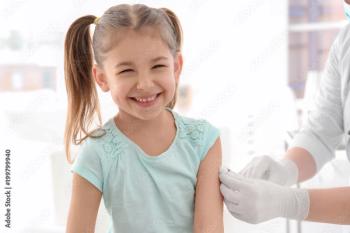
FDA Considering Public Suggestions for Efforts in Newborn Safety Studies
Stakeholders may comment on guidance’s at any time, but the FDA plans to review and consider those sent by the May 15 deadline before finalizing the guidance.
This article was updated after the public comment period closed with comments from Jennifer Dollar, M.D., FASA, chair of ASA’s Committee on Pediatric Anesthesia.
The Food and Drug Administration (FDA) is accepting public comments for their proposed guidance on “long-term clinical neurodevelopmental safety studies in neonatal product development,” until the May 15 deadline.
Stakeholders may comment on guidance’s at any time, but the FDA plans to review and consider those sent by the deadline before finalizing the guidance, according to an FDA spokesperson.
The
In other words, what evaluations could be useful to assess long-term safety of a medical product intended for use in newborns, the FDA spokesperson said.
The FDA guidance stated that consideration of these potential long-term effects in the neonatal population early on in a drug development program will help ensure a safer product.
“Treating newborns with medical products coincides with a time of critical growth and development,” the spokesperson said. “Short-term safety evaluations typical for adults or other populations may fail to identify important adverse effects in newborns, which may follow early-life exposures.
Long-term safety studies are often important to assess the safety of medical products used in newborns because important health effects resulting from medical products used during the newborn period may not become apparent until after a baby has grown older.”
The first several weeks of life is a time of critical growth and development for babies. Newborns undergo rapid changes in all their organ systems and tissues, making them a uniquely vulnerable population. Medical products approved by the FDA for newborn babies must be proven to be safe and effective.
According to a Medical Products for Newborns
Federal laws incentivize and require pediatric studies under certain circumstances but there are still many challenges for addressing the needs of newborns, the passage states.
For example, most drugs used in neonatal intensive care units have not been approved by the FDA for use in newborns. Doctors routinely treat newborns with medicines approved for adults or older children if the doctor believes the medicine is the best available treatment option for the newborn.
In addition, many medical conditions that occur in newborns don’t occur in older children or adults, so, data from pediatric or adult studies often are not available to help inform the assessment of safety and effectiveness of medical products for these conditions.
The FDA claims advancing treatments for newborns and including evidence-based information in product labeling about how to safely treat newborns continues to be a key area of focus.
The draft guidance is "an important step in recognition of potential neurodevelopmental effects of medications and therapies in the neonatal population and recommends reasonable approaches to evaluate possible consequences, according to Jennifer Dollar, M.D., FASA, chair of the American Society of Anesthesiologists' (ASA) Committee on Pediatric Anesthesia.
Dollar claimed that historically, neurodevelopmental safety and long-term pediatric outcomes have not been necessarily emphasized during new medication and product development.
The ASA recommended it would be ideal to expand the long-term developmental study period beyond 2 years of age to better determine what, if any, effects on cognitive function may exist once a child reaches school age.
Other recommendations for the FDA include:
- Addressing damage from neonatal drugs and products on the heart, kidneys, liver and bones as they can affect a child’s brain development.
- Next, the FDA should address evidence that shows how painful injections and procedures can impact newborn brain development, as well as evidence that different treatment delivery methods can affect how the body processes medications and how effective they are.
- Lastly, the FDA should provide additional guidance on neurodevelopmental vulnerability, potentially adjusting it to account for the fact that younger children’s brains may tolerate insults without lasting effects better than older patients.
Newsletter
Get the latest industry news, event updates, and more from Managed healthcare Executive.























